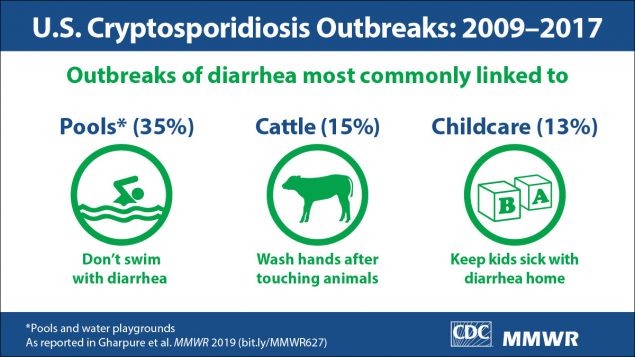Summer is finally here, and that means lots and lots of hot, sunny days and plenty of trips to the local pool or nearby water park. If taking a dip in the public pool is your favorite way too cool down, the Centers for Disease Control have a warning that might make your stomach turn, and make you second-guess your favorite summer pastime in the process.
A new report on the nature of Cryptosporidium outbreaks in the United States from 2009 through 2017 shows that pools and water parks are the two most common ways to end up with a nasty parasitic infection. The study says a full 35 percent of cryptosporidiosis outbreaks are linked to exposure at water parks and public pools, and the CDC has a very specific guideline that everyone should follow.
When you come down with a case of cryptosporidiosis the primary symptom you’ll notice is intense diarrhea. Even individuals with robust immune systems can experience liquid poo for several weeks before things return to normal, and the CDC warns that “fecal-oral transmission” is one of the primary ways the parasite spreads. Ew.
The CDC’s primary tip for preventing the spread of the parasite and curbing the number of infections? Don’t swim with diarrhea. No, seriously, that’s exactly what the CDC says:

The CDC’s other helpful tips include washing hands after playing with animals and keeping sick kids home so that they can’t spread the parasite to others. In all three of these cases, poop is the primary culprit.
It’s worth noting here that it doesn’t matter how clean the water you’re swimming in looks. It could appear crystal clear, and even be treated with chemicals as the water in most public pools and water parks is. None of that matters, and the parasite’s eggs can keep on kickin’ until they enter your body and takes up residence.
Documented cases of infection have risen by a startling 13 percent per year on average, which means more and more people with diarrhea and even more potential sources of new parasites.








